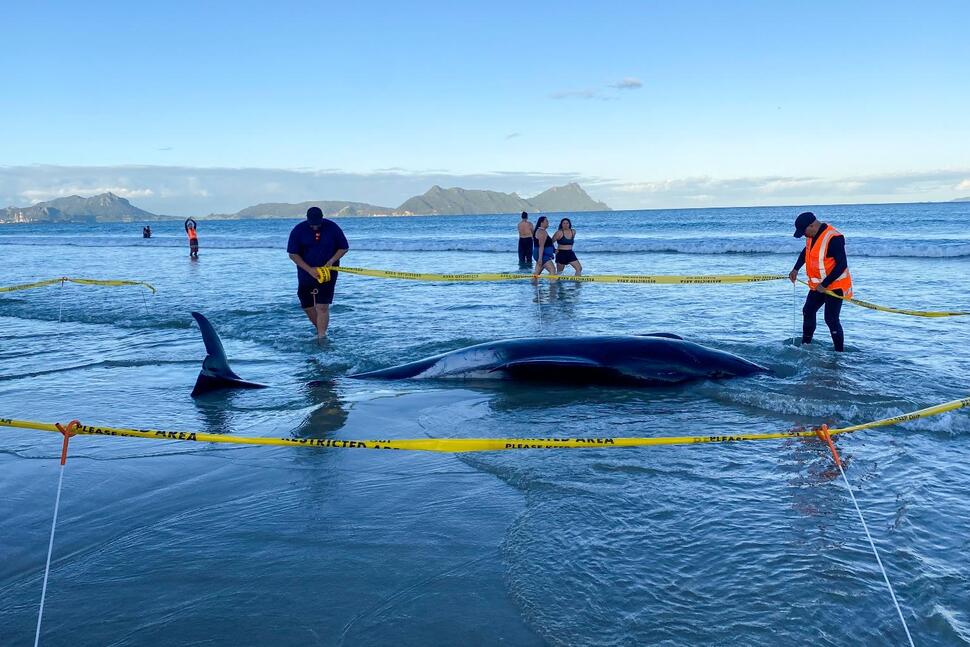More than 30 pilot whales that stranded themselves on a beach in New Zealand have been safely returned to the ocean after conservation workers and residents helped to refloat them by lifting them on sheets
WELLINGTON, New Zealand (AP) — More than 30 pilot whales stranded on a beach in New Zealand were successfully returned to the sea thanks to the combined efforts of conservation workers and local residents, who used sheets to help refloat the animals. Sadly, four of the whales did not survive, according to New Zealand’s Department of Conservation.
New Zealand is known as a hotspot for whale strandings, with pilot whales particularly prone to such incidents. On Sunday, hundreds of volunteers worked tirelessly to save the pod at Ruakākā Beach, near the northern city of Whangārei. By Monday, a monitoring team was ensuring the rescued whales had not returned to shore.
Joel Lauterbach, a spokesperson for the Department of Conservation, commended the community’s extraordinary efforts.
“It’s truly heartwarming to see the compassion and dedication people have shown toward these incredible creatures,” Lauterbach said. “This response underscores the profound connection we share with our marine environment.”
A Māori cultural ceremony was held Monday to honor the three adult whales and one calf that perished. Whales are considered taonga, or sacred treasures, by New Zealand’s Indigenous Māori people, reflecting their cultural and spiritual significance.
Whale strandings are not uncommon in New Zealand, with over 5,000 recorded since 1840. The largest occurred in 1918, when an estimated 1,000 pilot whales stranded at the Chatham Islands.
The exact causes of strandings remain uncertain, but New Zealand’s unique geography is thought to play a role. The nation’s shallow, sloping beaches and protruding coastlines can confuse echolocation-dependent species like pilot whales, increasing the likelihood of strandings.
